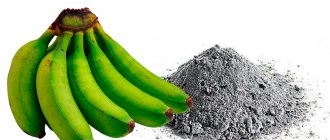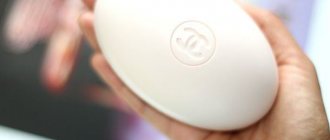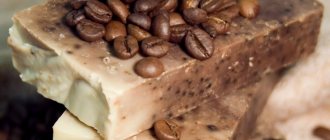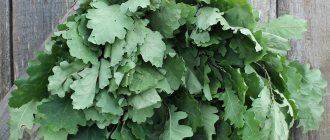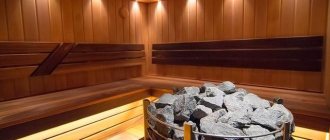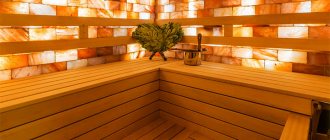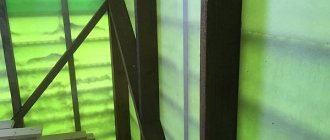Among modern body care products, there are many shower gels, shampoos, scrubs, after-bath creams and more. The abundance of store shelves beckons with bright packaging and generous advertising of new floral scents.
But it often happens that all these body care products are not suitable for going to the bathhouse, because they cannot withstand high temperatures. Moreover, heating some ingredients in gels, lotions and masks is dangerous to human health. This is why cosmetic products made from natural ingredients will never be inferior to modern products in use. Granny Agafya’s multifunctional black soap is a good example of how natural ingredients are more beneficial.
Black soap: what is it?
Imagine for a moment what would happen if the endless incomprehensible packages from the bathroom shelf disappeared, and instead of them there appeared a single universal remedy that helps with everything. An excellent alternative to all modern shower gels with synthesized odors of compressed plants is black bath soap. Customer reviews of the product are mostly positive, which indicates the high quality of the product. Add to this its properties, composition, natural ingredients, and you get an ideal universal skin care product.
What is Siberian black bath soap? A capacious and weighty jar with the inscription “Granny Agafya’s Recipes” holds 500 ml of thick jelly-like mass, much more than other manufacturers. This soap is not a hard piece of boiled fat, as we used to think, but a concentration of extracts of many beneficial herbs. When viewed from above, it is truly black, but when you take a little on your hand, it becomes transparent. The soap smells pleasant, but at the same time unobtrusive. The consistency is delicate, homogeneous, spreadable. Foams easily, applies and rinses off well.
From the Soap Technologist's Handbook
Bath soap, the composition of which is determined by its consumer qualities and partly by the technology used, is a fairly technological product. The basis of modern, in our understanding, detergent and cosmetic products are mixtures of soluble salts of higher fatty acids, namely: sodium, potassium, ammonium salts of stearic, oleic, lauric and the like.
As raw materials, bath soap uses vegetable and animal fats and fat substitutes, which can be synthetic fatty acids, tall oil, rosin, etc.
Saponification
At the first stage, the fat is heated in digesters to a certain temperature and treated with alkali, usually sodium hydroxide. As a result, a uniform thick sticky soap-like mass is formed in the container, which in industrial usage is called “raw” or soap glue. It is basically made up of unrefined soap and glycerin. The peculiarity of the resulting mass is that it hardens quite strongly when cooled. This is a direct method of making soap and the finished product can contain between 40 and 60% fatty acids. Its common name is glue soap.
Salting
It is also called the “indirect method” and it consists of electrolytic treatment - treating soap glue with solutions of sodium chloride or other caustic alkali. As a result, the mass separates into a “soap core” and “soap lye”. In the soap core, the fatty acid content steadily increases to 64%. All the main polluting components and the bulk of glycerin are collected in the soap lye. The finished product is called “sound soap”.
Pilling
To produce the highest grade of soap, the soap core is intensively dried and passed through the roller system of a pilling unit, resulting in active grinding of the raw material. The resulting soap enriched with fatty acids is more resistant to negative external factors during transportation, storage, and use, has a harder consistency, a concentration of active acids of up to 74%, and is less rancid and deteriorates under the influence of moisture. It is pill soap that is the basis for the main varieties of high-quality laundry soap and such a product that interests us as bath soap.
Composition of the product
A completely natural product is not an exaggeration. That's really all that goes into black bath soap. The label on the packaging states that the soap contains 37 herbs. Indeed, if you look at the ingredients, there will be a long list of herbs, extracts and oils that are included in the product. Each component performs its own function, beneficial for both hair and the whole body.
More details about the components:
- natural essential oils in the product soften the skin and nourish it with many components;
- extracts of various plants promote skin regeneration, help hair regenerate, make the skin elastic and nourish it;
- infusions are another good component that cleanses pores and removes dirt;
- tar and birch chaga - these two components give the soap its color, but, in addition, tar itself is an excellent component in the fight against skin rashes;
- On the packaging of the product composition, you can notice only 4 chemical elements added for consistency.
A pleasant addition for many buyers will be the small birch leaf that is visible on the surface the moment you open Grandma Agafya’s black soap. The composition, as can be seen above, is completely natural, which cannot but please people who are sensitive to various kinds of components.
What's the use of it?
Black soap can be used on the face, body and hair. The product has a lot of positive qualities.
Its healing properties include the following:
- Strengthening hair roots and stimulating their growth.
- Softens rough skin, including on elbows and heels.
- Healing cracks and injuries on the skin.
- Creation of a protective film on the surface of the epidermis.
- Help in the treatment of skin diseases: fungus, eczema, dermatitis, etc.
- Normalization of the process of sebum production.
- Help in the fight against pimples and acne, etc.
In addition to the above, black soap is effective for treating dandruff. Regular use of the product helps eliminate dark spots on the skin, smooth out scars and scars, and moisturize the epidermis.
Black African soap is suitable for both men and women. The only contraindication for its use is individual intolerance to the components included in the composition.
Application
Great popular love for this soap arose precisely because of its versatility. A natural remedy, not intended for anything specifically, but applicable as any modern composition. It smells nice, has excellent consistency, and foams well. Great for hair and body. In addition, it can be used as:
- shower gel;
- hair shampoo;
- shaving foam;
- anti-dandruff products;
- foam for washing;
- makeup removers;
- hair growth and restoration product;
- and, of course, for its intended purpose.
The imagination of sophisticated buyers, of course, is enough to use grandmother Agafya’s black soap in different ways. The composition of the product is universal, the texture of the soap is pleasant, and the smell is unobtrusive. Many people associate the smell of herbs with a Russian bath, in which using one product instead of many different ones is much more convenient and practical.
A little history
Soap appeared relatively recently, only in the 14th century in Italy. Before this, they washed themselves using handy means: ash or sand. The ancient Egyptians, who were not real sybarites, used a special paste made from beeswax with the addition of herbs and honey. Such pasta cost incredible amounts of money and was beyond the means of many, even wealthy people.
For a long time, soap remained the only effective means of cleansing the skin. With the development of science and technology, a breakthrough also occurred in the cosmetics industry: today store shelves are literally bursting with a variety of shampoos, shower gels, scrubs, masks and other products. However, true connoisseurs of the Russian bath still prefer to wash with soap, ignoring industrial achievements. Why?
The beauty industry has come a long way since the times of the Egyptian pharaohs.
Advantages of bath soap
- High disinfectant properties;
- Natural composition: bath soap contains several times less perfume and aromatic additives that can cause allergies or irritation on steamed skin and more all kinds of medicinal components;
- Reasonable price - soap is available to all segments of the population, and for many, alas, it is the only means of hygiene.
What is bath soap made from?
Bath soap contains:
- Sodium salts of edible fatty acids;
- Animal fat (meat production waste);
- Water;
- Palm and coconut oil;
- Titanium dioxide (bleach);
- Antioxidant;
- Plasticizer;
- Additives (fruit and berry extracts, essential oils, infusions of medicinal herbs).
Comparison with other products
Of course, Grandmother Agafya is far from the only one who thought of combining many extracts and creating such a universal remedy for the body. Natural black bath soap is a very common product on the market. Naturally, he has his own competitors who are trying to adopt the recipe, create a cheaper product, and lure potential buyers to themselves. Black bath soap has mostly positive reviews. Short annotations written by customers help to better navigate the range of products.
Natural Altai soap
In addition to the product made according to traditional Siberian recipes, you can purchase natural Altai black soap for the bath, which, in principle, has the same properties as the body product presented by Grandma Agafya. Altai soap is much inferior in the number of ingredients. It contains many more chemicals, including parabens. Altai soap includes only herbal extracts and several types of oils; infusions are not added to it. This soap may be suitable for a bath, but not for everyday cleansing.
DIY bath soap
In any store, even a regular supermarket, you can easily find black bath soap, white, floral, in liquid and solid form. But if you want to feel like a real soap maker or want to be sure that the composition of your cleanser is natural, then we suggest making your own soap.
To make soap you will need the following ingredients:
- soap base;
- base and essential oils;
- mold for pouring soap;
- dishes for a water bath;
- dyes;
- other additives.
You can buy ready-made soap base, it can be white or transparent. The only difference is that when you use the second one, you will get transparent soap.
You can use regular soap as a base, just grate it. But then you need to choose soap with a minimum content of preservatives, so it is better to give preference to baby soap.
There are different base oils: olive, peach, apricot, flaxseed, coconut, cocoa butter, grape seed oil, etc. Each of them has its own unique properties, so when choosing, be guided by the characteristics of your skin.
There are even more essential oils to choose from, so it's also worth paying attention to your needs. For example, people with oily skin, suffering from frequent rashes and inflammations are recommended to choose tea tree oil, lemon balm, and mint. If you want to improve skin tone and get rid of cellulite, then pay attention to orange, tangerine, and juniper oil. For dry skin, rose and lavender oils would be a good choice.
Soap molds come in silicone and plastic. They can be purchased at craft supply stores. It is not necessary to use special molds; you can get by with ordinary children’s sand molds, baking dishes and other improvised means (cheese boxes, cottage cheese). Special molds are usually purchased by those who make soap professionally.
We recommend reading:
How to crochet and knit a washcloth? Schemes, photos, videos
It is not necessary to use dyes, but if you want the soap to also be pleasing to the eye, you can try adding different colors to it.
Dried herbs, coffee, oatmeal, cream, honey, etc. can be used as additives in bath soap.
To make soap, you need to grate the soap base or cut it into small pieces. Melt the base in a water bath, pouring base oil into it in the following ratio: 3 tsp per 100 g of soap base. oils
While the base is heating, you need to gradually add water, milk or cream to it, making sure that it does not separate.
When the base is completely melted, you need to add 5 drops of essential oil, dyes, flavors and other additives.
Then you need to pour the mixture into the mold, after spraying it with alcohol to avoid the appearance of bubbles.
Leave the soap in the refrigerator for a couple of days until completely dry.
Then remove the soap.
As you can see, the preparation process is quite simple, even someone who has never tried making soap before can handle it.
Below are some healing bath soap recipes that you can make.
Soap with herbs and sea buckthorn
- 100 g soap base;
- 2 tsp. dry herbs ground in a coffee grinder;
- 1 tsp. sea buckthorn oil;
- 2 drops of fir oil;
- 1 drop each of juniper, chamomile and larch oil.
There is no need to use dye for soap, because sea buckthorn oil will color it yellow. The soap will have a pleasant herbal aroma; it is perfect for problem skin, as it contains oils that have a calming effect.
Olive soap with cedar and celandine oils
- 100 g soap base;
- 1 tsp. cedar oil;
- 1 tsp. olive oil;
- 0.5 tsp. celandine;
- essential oils of eucalyptus and mint.
The soap is gentle and moisturizing; it will thoroughly cleanse the skin without drying it out. Suitable for dry skin.
Thick bath soap with scrubbing effect
- 100 g creamy soap base;
- 1 tsp. ground eucalyptus leaves;
- 1 tsp. olive oil;
- 10 drops of eucalyptus essential oil.
The soap will have a creamy texture, so you will need a jar to store it. Ground eucalyptus leaves will gently exfoliate the skin, leaving it soft and smooth.
Products
There are quite a lot of black products in the product line. For example, a special facial soap with activated carbon, which effectively gets rid of blackheads. Siberika cedar body soap is similar in composition to grandma Agafya’s black soap. It is black in color, smells nice, but has a more liquid consistency.
The components in it, unlike other manufacturers, are selected specifically to solve specific problems. The company initially does not set itself the goal of making a “hodgepodge” of herbs; each component solves specific skin problems. The price of Siberika black soap is quite high (varies within 500 rubles). The downside of the product is that this product is intended exclusively for the body; for hair you will have to purchase a product from another line, which is no longer profitable.
Disadvantages of black soap from Grandma Agafya
The use of each hygiene care product is purely individual. What works for one person will likely have a detrimental effect on another's skin. Therefore, you should be careful when choosing a body cleanser.
Black bath soap caused a lot of inconvenience to some users. Reviews are left both positive and negative. Based on consumer problems, you can make a list of short recommendations for its use:
- You should not use black soap to wash your hair too often: it is better to wash your hair with it no more than 2 times a week;
- you should not rub it long and hard into the skin, it cleans the pores, but at the same time dries the skin;
- Facial skin is especially delicate and requires careful and separate care. Using soap, you can dry it out;
- Soap should be used in small quantities due to its high concentration.
A bad impression of using black soap can be left by its packaging: an inconvenient wide jar, from which you have to remove the mass with your fingers. Natural black bath soap of this consistency simply cannot fit into a package with a dispenser, so this type of jar is the most logical for this product. To prevent water from getting into the jar and the product becoming dirty, it is better to purchase a plastic spoon or spatula.
Advantages
Nevertheless, black soap for baths also has its advantages. Summarizing all of the above, we can formulate several conclusions:
- the soap is created on the basis of natural ingredients;
- multifunctionality of the product;
- average price;
- large volume;
- positive consumer ratings.
over many years of existence on the market, it has established its products as high-quality, natural products that everyone can afford.
Black bath soap: price
If we compare other companies that produce bath products, Grandma Agafya’s black soap is in the middle price category. A 500 ml jar of black soap costs about 300 rubles. Siberika offers its consumers soap weighing 120 g for 500 rubles. The cost of the product from Grandma Agafya starts from 350 rubles. It is safe to say that the price fully corresponds to the quality of the product.
Bath soaps from “Rainbow Smile”
In addition to Grandma Agafya, other manufacturers also produce special bath soaps. So, in the Rainbow Smile stores you can purchase:
- White soap with cedar essential oils.
- Green soap based on juniper oil.
- Black soap based on eucalyptus oil and birch tar.
- Brown soap based on kvass soup.
- Orange soap based on orange oil.
The manufacturer claims that all these types of soaps - without any artificial fragrances, without parabens, gently and deeply cleanse the skin and have a powerful antioxidant effect.
User comments
In conclusion, I would still like to return to the opinions of other buyers who have already chosen black soap for their bath. Reviews often influence our decisions. If they are positive, we, without hesitation, give preference to one or another remedy.
Many buyers are satisfied with the quality of black soap. However, when purchasing this product, there is a suspicion that it will smell like tar. But this is actually not the case; black soap has a rather pleasant smell. It perfectly moisturizes the skin and feels like it contains oils. The soap is intended for baths, so it can be used at fairly high temperatures.
It is worth noting that many buyers use black soap not only as a body care product. You can wash your hair and even your face with it. Black soap is a multifunctional product. After using soap, as customers note, hair becomes not only clean, but also soft, it acquires a healthy shine. Men also use black bath soap, reviews of which are positive, because it can be used as shaving foam.
What does it contain?
The composition of African soap may vary depending on the region of manufacture and the technology used. However, there are a number of certain ingredients that are found in most types of black soap.
These include:
Plantain
This is the ash obtained by burning green banana. The substance gives the soap the appropriate color and also has a positive effect on the condition of hair and skin. Ash regulates sebum production and helps lighten age spots.
Coconut oil
Creates a protective film on the skin, well moisturizes and softens the epidermis. The oil also protects against the negative effects of ultraviolet rays.
Vitamin supplements
Most often, vitamins A and E are added to the mass, which protect the skin and help accelerate regeneration processes in cells.
Vegetable oils
You can add shea butter, wheat germ, grape seed, etc. to the soap. Each composition has its own unique healing effect.
According to the original recipe in African countries, black soap is prepared as follows:
- Prepare the soap base. To do this, they burn the bark and leaves of the palm tree. The resulting mass is the main component of the future soap.
- Various oils are added to the ash and the mixture is stirred for 24 hours. The result should be a homogeneous consistency.
- The resulting slurry is infused for several weeks until it acquires a solid consistency.
Modern black soap presented on store shelves is produced under industrial conditions. Its technology and composition are very different from the original. However, a good and high-quality product provides exceptional benefits for the body.
